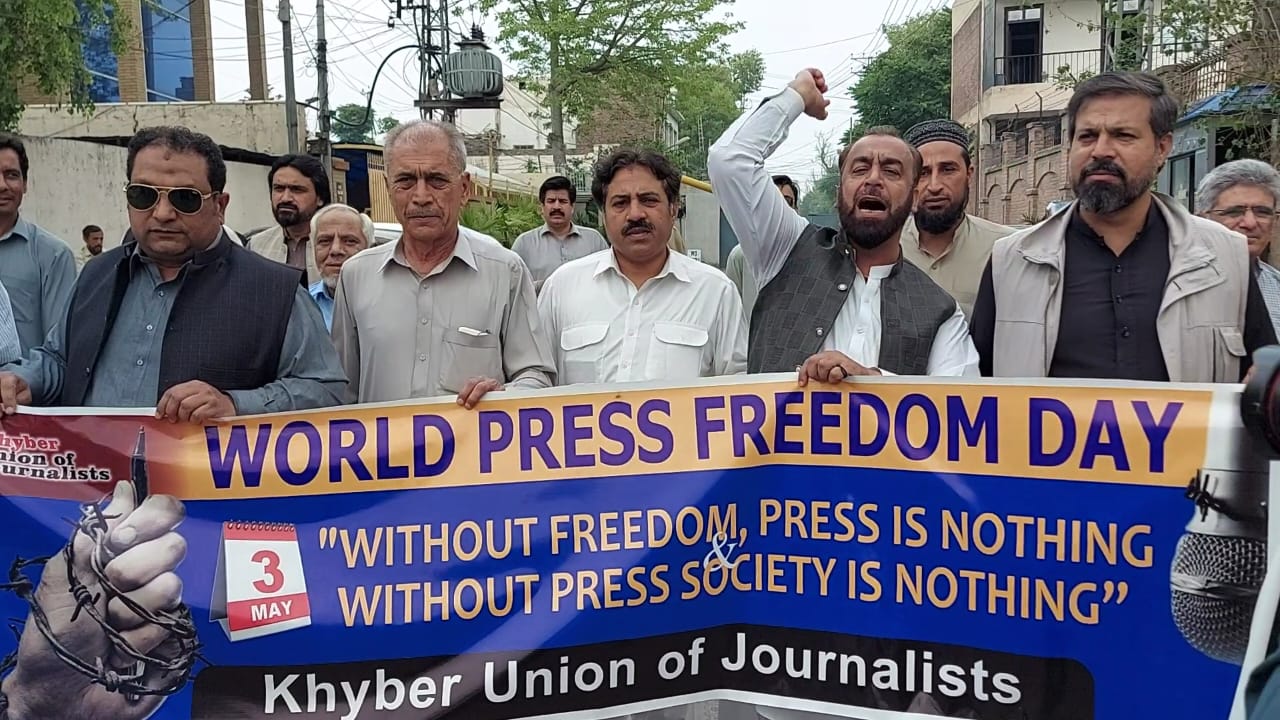
Peshawar: As Pakistan marks World Press Freedom Day on May 3, the country's media landscape finds itself not at a crossroads—but at the edge of collapse. The 2025 annual report by Freedom Network Pakistan, ominously titled “Free Speech and Public Interest Journalism Under Siege,” confirms what many feared: journalism in Pakistan is no longer merely under threat—it is under assault.
The Legal Weaponization of Censorship
The January 2025 amendments to the Prevention of Electronic Crimes Act (PECA) represent a critical turning point. What was once a cybercrime law has now been weaponized to systematically target dissenters, journalists, and digital activists. The report confirms that 14 journalists faced legal action under PECA, and eight were arrested or detained. These are not isolated incidents but part of a broader, chilling trend: the criminalization of journalism.
Journalism Now a Dangerous Profession
Perhaps most alarming is the human cost. In just one year, five journalists were killed—a grim reminder that speaking truth to power in Pakistan can be fatal. Khyber Pakhtunkhwa (KP) emerged as the most dangerous province, recording 22 cases of violence or threats against journalists, followed closely by Islamabad (20 cases) and Punjab (18 cases). This geographic spread illustrates how no region is safe; the crisis is nationwide.
Shrinking Space, Collapsing Integrity
The report notes that 82 journalists faced threats in various forms during the review period. From online harassment and legal intimidation to physical violence and job insecurity, the media is being squeezed from all sides. The result is a deeply compromised press, unable to fulfil its role as a watchdog in a functioning democracy. The erosion of editorial independence and rise in self-censorship—fueled by fear and economic pressure—mark a sharp decline in both media freedom and public trust.
A Democracy in Peril
Iqbal Khattak, Freedom Network's Executive Director, warns that this existential crisis “threatens the very foundation of democracy.” And rightly so. A society deprived of free speech is a society cut off from accountability. The ongoing clampdown on dissent, particularly in the digital space, signals that the state not only rejects criticism—it now fears it.
Gender Inequality Persists Despite Progress
Though the report mentions a modest improvement in women’s participation in media, it also highlights ongoing gender disparities. While more women are active across platforms—from digital media to television—they remain underrepresented, underpaid, and more vulnerable to harassment, especially online.
The Call to Action
The report’s most powerful recommendation is the need for a national movement to protect the constitutional guarantee of freedom of expression. It calls for public engagement, civil society mobilization, and a new digital rights charter to ensure that online freedoms match those offline.
But building such a movement will require courage, unity, and, above all, international solidarity. Pakistan’s civil society, media professionals, and human rights defenders must come together — not only to protect journalists, but also to safeguard the digital spaces that ensure citizens' right to free expression online.